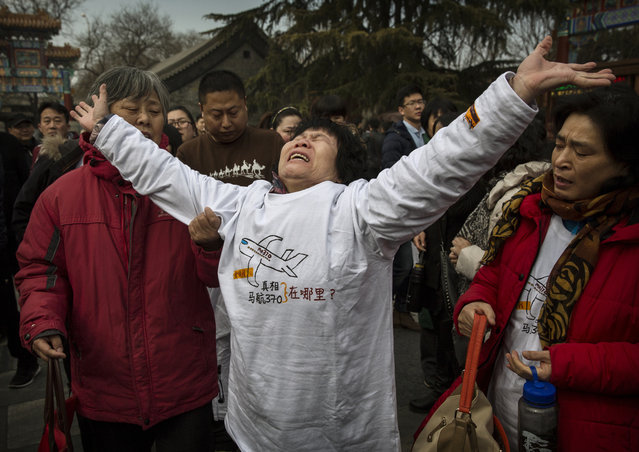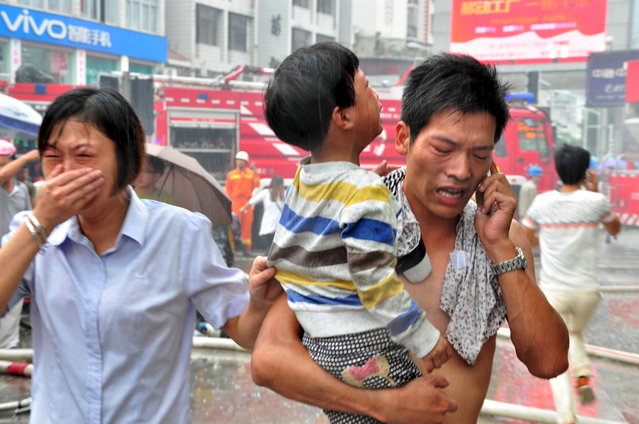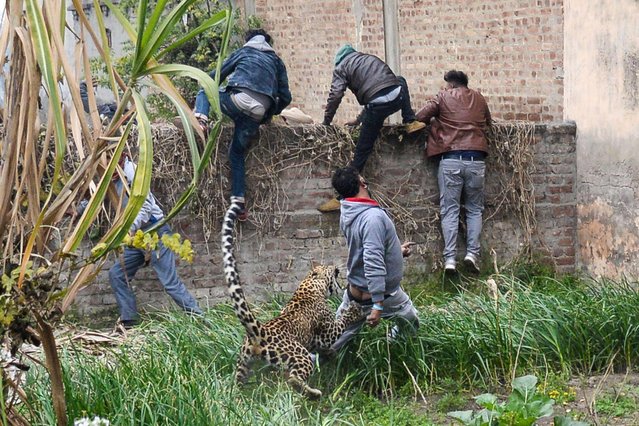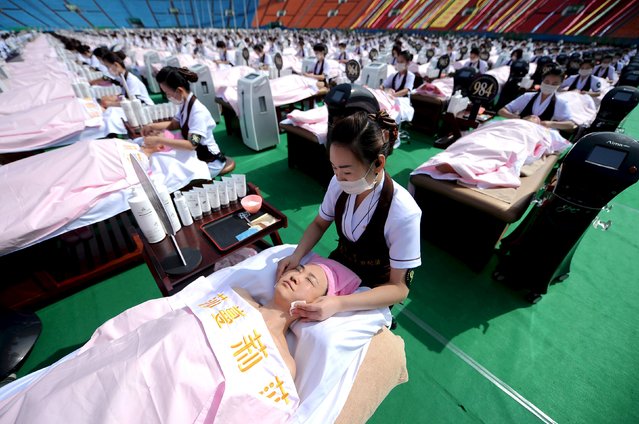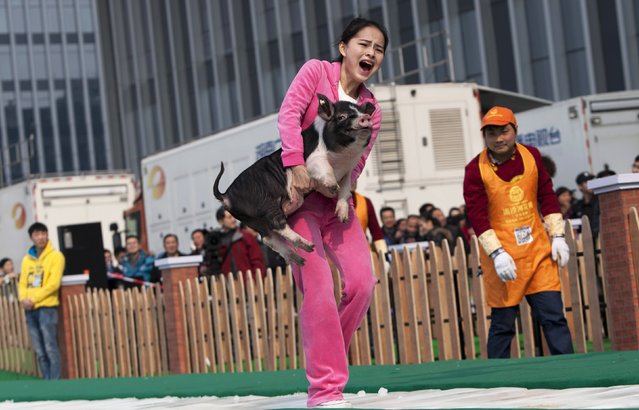
A woman carries a piglet as she runs on ice during a running challenge in Changsha, Hunan province February 8, 2015. A total of 20 people participated in the challenge requiring them to choose a pig ranging between 15 kg and 115 kg in weight, and carrying it while running on a 20.15-metre-long ice track. The participants that complete the challenge will be rewarded with the pig they carried, local media reported. (Photo by Darwin Zhou/Reuters)
14 Feb 2015 12:31:00,post received
0 comments

